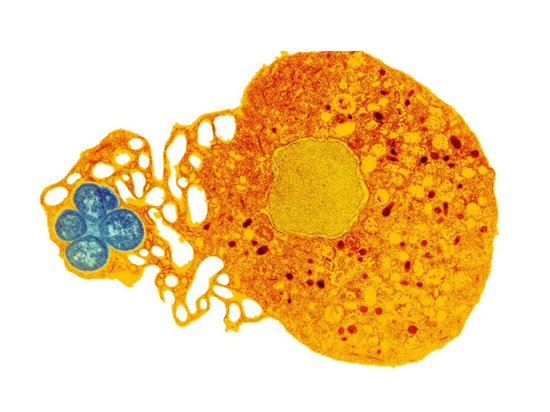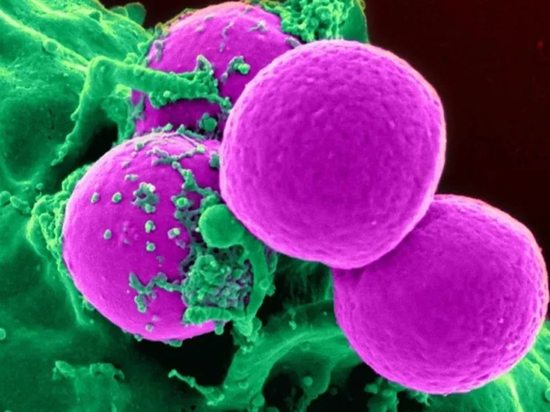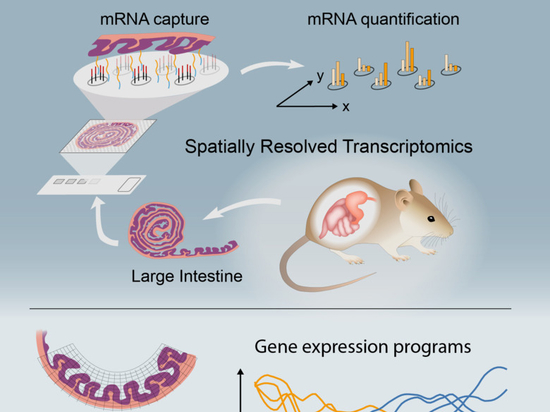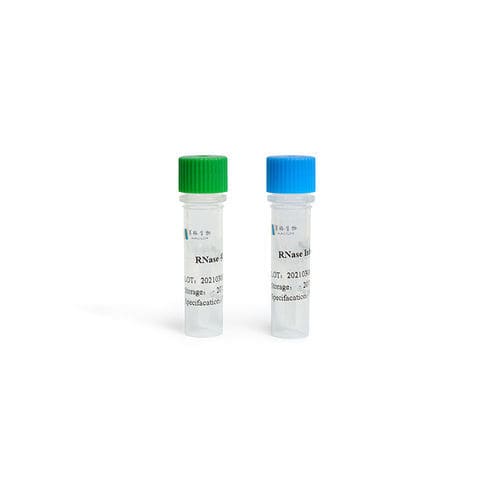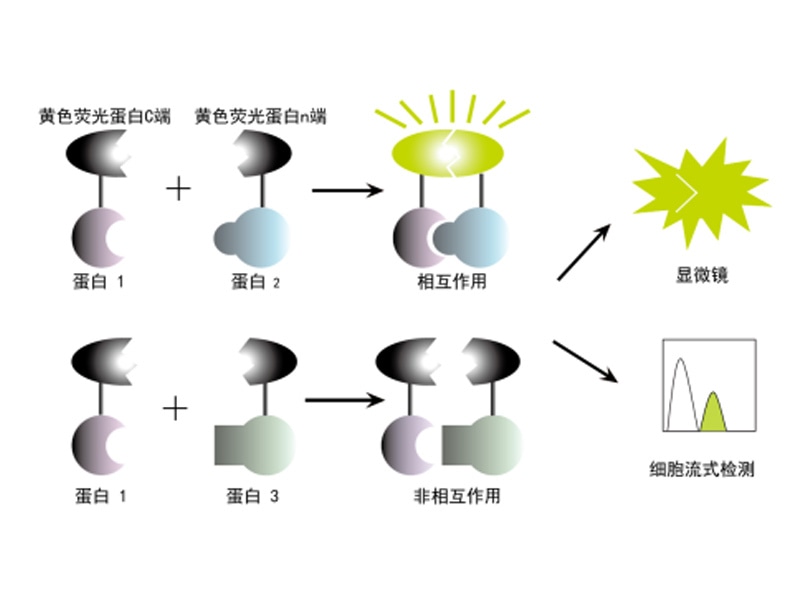
#Industry News
PCa screening of human protein library interaction
PCa screening of human protein library interaction
Principle of protein fragment complementarity PCA Technology
Proteins often do not complete their functions independently in cells, but usually interact with other proteins to form complexes, so as to complete specific functions in a specific time and space. Understanding the interaction between proteins, especially large-scale and high-throughput screening of protein-protein interaction, and then depicting the network map of protein-protein interaction is of irreplaceable significance to reveal the function of a protein and finally clarify the molecular mechanism of various life activities in cells.
Protein complementation assay (PCA) is a new technology to intuitively and quickly analyze the interaction and localization of proteins in living cells. The mechanism of this method is as follows: only proteins with complete structure can realize their functions. However, when the functional protein is divided into N-terminal and C-terminal halves, neither half can play a role alone, but if it is close enough in space, it can complement and restore the original function. Connect the two inactive fragments at the N and C ends with the target protein respectively. If the two target proteins interact, the two fragments of the segmented functional protein will be close to each other in space and re form the protein with functional activity. Whether the target protein interacts can be determined by detecting the activity. According to the needs of different experiments, the functional proteins used for PCA include luciferase and fluorescent protein.
Characteristics and advantages of Meige biological PCA Technology
The company's PCA library includes 18000 human proteins, which can quickly and easily screen the protein interaction in human cells, as well as the interaction between pathogenic proteins and human host proteins. Based on the protein fragment complementarity technology, the company has obtained the national invention patent by high-throughput screening of protein-protein interactions, which has the following characteristics and advantages:
1. Direct and in situ detection of protein-protein interactions in living cells.
2. The sensitivity is high enough to detect the protein-protein interaction equivalent to the endogenous expression level.
3. Transient and indirect protein-protein interactions can be detected.
4. Using bioinformatics software, we can easily and quickly generate the results of Shengxin analysis and draw the map of protein-protein interaction network
Steps of Meige biological PCA Technology:
1. Clone the gene to be tested into the expression vector containing the N-terminal of the functional protein to construct the bait plasmid;
2. Transform the bait plasmid into cells and select the transformed cells;
3. The library plasmid (containing 18000 human genes and cloned into the expression vector containing the C-terminal of functional protein) was transformed into the cells expressing bait plasmid;
4. High throughput screening and identification of proteins interacting with bait by flow cytometry or luciferase reporting system.
5. Bioinformatics analysis results, give the list of proteins interacting with bait proteins.
6. Submit the experimental report (including experimental operation process, data and charts), and submit the list of proteins interacting with bait proteins.
7. (optional) further verify the protein interacting with the bait by PCA or cellular immunofluorescence or immunocoprecipitation
The customer shall provide gene cloning with correct sequence and relevant information. If the bait protein gene is cloned within the company's library, it is not required to provide.
Cycle: the PCa screening experiment cycle of the interaction between each protein and the library is 90 working days.
Submit on service completion:
1). Technical service report (experimental operation process, data and charts)
2). List of proteins interacting with bait proteins


